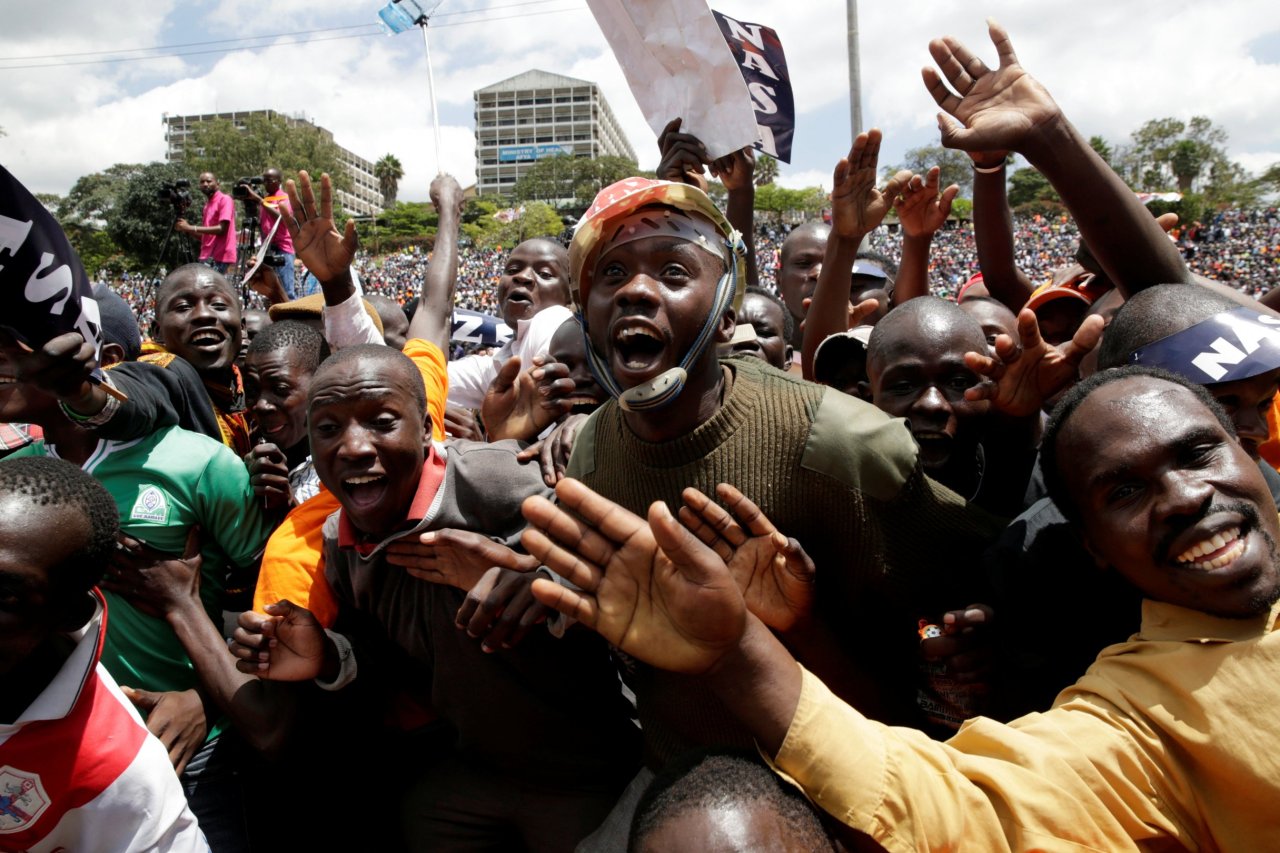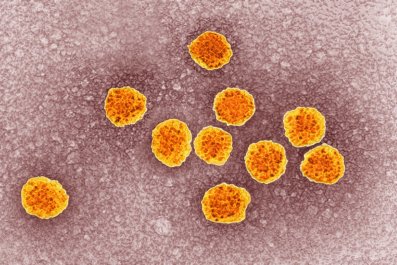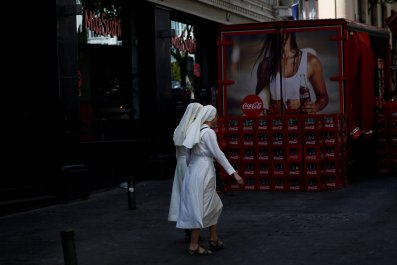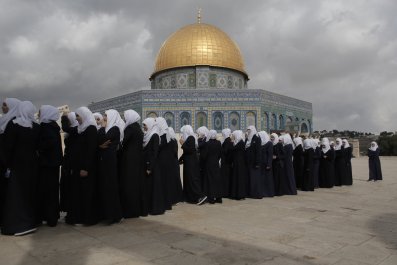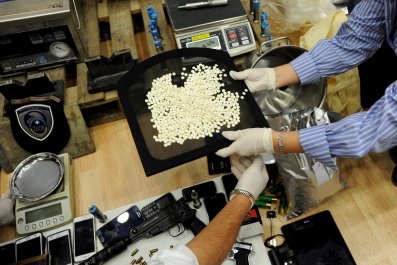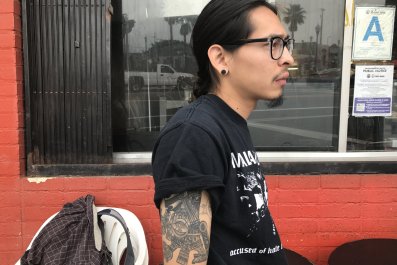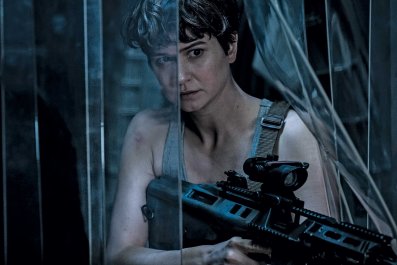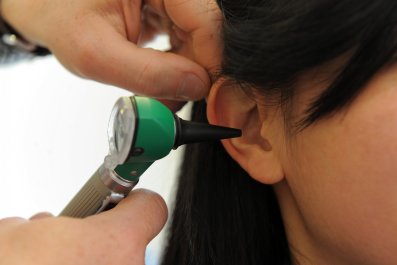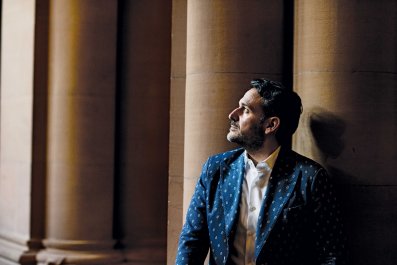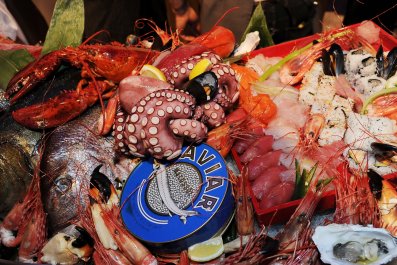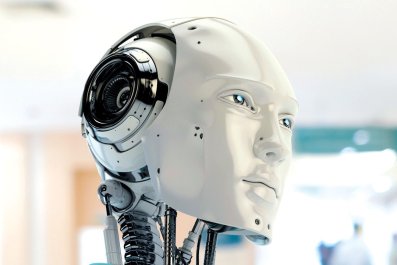As commuters in the heart of Nairobi hustle past one another on River Road at the end of a recent workday, young men are buying machetes in a hardware shop before boarding a bus. The tools aren't for clearing brush or making campsites, chopping food or splitting firewood. Peter Mwangi, who runs an electronics shop, is arming himself in case of election chaos. "I know there will be violence. I need to ready myself," says Mwangi, holding a giant knife. "In the 2007 elections, we were not prepared. We were attacked, and I lost some of my relatives. But this time, it will not happen."
Mwangi says his shop was looted during the violence in 2007 that followed the election of Kenyan President Mwai Kibaki, who is accused by the opposition of taking power through vote-rigging. More than 1,300 were killed and about 600,000 were displaced from their homes during those protests.
Kenya next holds general elections on August 8. As the campaigning kicks off between incumbent President Uhuru Kenyatta and opposition leader Raila Odinga, the parallels to 2007 are striking. Back then, Odinga was running against Kibaki. Now, as then, suspicion of government election officials is high. The electoral commission and the courts lost credibility in the eyes of many in 2013, when the Supreme Court upheld Kenyatta's election as president, despite widespread allegations of fraud.
"We are going to win this election very early in the morning," says Kennedy Oluoch, who plans to vote for Odinga. "We have enough numbers to beat the ruling party. If they try to rig it again, like they did in 2013, Kenya will burn."
The country is polarized along ethnic lines. The ruling party is determined to win a second term, while the opposition says it sees signs of plans to rig the vote and vows not to accept a stolen election. "The opposition will lose this election terribly and resort to violence," says Mwangi, who comes from Kenyatta's tribe. "But we will not accept them to disturb our peace and attack other tribes. We will retaliate if they try to attack us."
A report that Kenya's National Security Council presented to Parliament last year warned that the nation is teeming with weapons, including guns, machetes and spears. "It is estimated that there are between 580,000 to 650,000 illicit arms circulating in the country which have been used to perpetuate conflicts thus increasingly posing significant socio-economic, political and security risks countrywide," reads the report.
In another report this year, the National Security Council warned that politicians are forming militias to protect themselves, ensure victory and cause trouble for opponents. "The heightening political temperature in view of the 2017 general elections has seen the resurgence of criminal gangs, political goons and militias," the report states.
Kenya's political parties have been holding their primaries to select candidates to represent them in the general election in August. Already, trouble seen in the primaries has rekindled memories of 2007. Seven people have been killed in political violence so far. In one incident, men armed with machetes and whips attacked party officials and accused them of planning to rig the vote. Police later arrested 17 people and displayed the weapons they had confiscated.
"I see chaos, strife and bloodshed in the forthcoming general elections of a magnitude unheard of in Kenyan electoral history," says Nazlin Umar Rajput, a Nairobi-based political analyst and chairman of the National Muslim Council of Kenya. "The violence and chaos evident in ongoing party primaries nationwide is clearly indicative of this."
This East African nation does not vote on issues but largely along ethnic lines. According to Kenya's National Bureau of Statistics, the largest native ethnic groups are the Kikuyu (6.6 million), the Luhya (5.3 million), the Kalenjin (5 million), the Luo (4 million) and the Kamba (3.9 million). They vote according to the dictates of their tribal kings, and political parties have formed alliances based on tribes. The Kikuyus and Kalenjins support the Jubilee Alliance of Kenyatta and his deputy, William Ruto. The opposition National Alliance is a union of tribes led by Odinga, a Luo from western Kenya, Musalia Mudavadi, a Luhya from western Kenya, and Kalonzo Musyoka from the Kamba tribe.
"There will be no peace in Kenya without Raila as the president," says Oluoch, a Luo, holding a portrait of Odinga. "No way they can win this election with only two tribes."
Political analysts say ethnicity per se has never been the problem in Kenya. But "self-centered demagogues who capitalized on the emotions of their neglected and impoverished communities" have used ethnicity to rally their supporters, says Rajput.
Critics across Kenya's 43 tribes have blamed the current government for corruption and raising the prices of basic commodities. Compared with only two months ago, now families are spending as much as twice the amount of money on commodities like vegetables, maize flour, sugar, milk, electricity and even rent.
Inflation has hit a four-year high, increasing from just under 7 percent in January to 9 percent in February because of fast-rising food and fuel prices, according to the National Bureau of Statistics.
But hard times are unlikely to outweigh tribal allegiances, analysts say.
Recently, eight politicians from both coalitions were arrested and charged with alleged hate speech and incitement to violence. The National Cohesion and Integration Commission, a government-funded independent body whose mandate is to crack down on hate speech, recommended the prosecution of 17 people, resulting in three convictions.
The commission also says that, as in the 2007 violence, certain radio stations are openly propagating an ethnic agenda. "We are extremely worried about what is going on," Francis Kaparo, the chairman of the commission, said at a press conference. "We are calling for peaceful campaigns ahead of the August elections."
Kenyatta has accused the opposition leader of trying to take advantage of violence. In 2007, Odinga was named the prime minister in a coalition government with Kibaki after international pressure to end the violence.
"Raila has again started inciting Kenyans, as he did in 2007," Kenyatta said at a recent rally. "He was the one who ignited the flames that set Kenya on fire in 2007, when he promoted the politics of what he called 40 tribes against one. Now, he is talking about 40 against two. Raila and his coalition are taking us back. Kenyans are not ready to enter into chaos again because of politics."
But Odinga rejected that charge, blaming Kenyatta and his allies for the 2007 violence. The Hague-based International Criminal Court investigated allegations against Kenyatta and his deputy, Ruto, for instigating violence in 2007, but the case was dropped due to sufficient evidence.
"Uhuru's desperation is understandable, as he is looking for something to hang on to re-energize his depressed 2013 voting bloc," Odinga said in a statement.
Regardless of who is to blame, Mwangi, the voter buying a machete, believes nobody can stop the violence. "I know Raila can't accept election defeat," he says. "This will lead to violence between his tribe and ours. But we are prepared for this."



